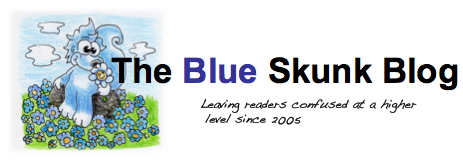What is cumul.us? cumul.us is a place to get simple, accurate, and useful weather information.
What makes it simple and accurate is that it collects weather forecasts from several sources and combines them together to give you a more accurate average, using the idea of the "wisdom of crowds". In short, cumul.us is the "wisdom of clouds". Not only is there data from meteorological sources, but people can make predictions themselves. (from the cumul.us help page)
Monica Hess's article "Truth: Can You Handle It?" (Washingtonpost.com, April 25, 2008*) uses culum.us as an example of "what happens to the concepts of truth and knowledge in a user-generated world of information saturation," questioning the "wisdom of the crowds" theory and students' attitudes toward information quality. Although the article doesn't cover tons of new ground, it is well-worth spending a few minutes reading.
Among other topics, Hess describes a number of ways teachers and librarians are working to insure students pay attention to the quality of the information they use in research projects. In one example a teacher requires that students use a certain number of print sources of information. Not an uncommon requirement.
But is requiring print sources of information in a paper or project desirable, practical or effective in 2008? Why is print - a format - considered sacred by so many teachers and librarians? Should we automatically assume that the quality of information in a book or magazine is superior to that "found on the Internet?"
Here are three reasons that we should drop the "must contain print resources" requirement:
- Such a requirement does not require any analysis of information quality on the part of the student. BOTH online and print resources need to be judged by their authority, currency and objectivity. The automatic assumption that
 print resources are reliable is dangerous.
print resources are reliable is dangerous.
- Such a requirement may limit the questions students might explore. A few years ago, my son Brady wanted to do a term paper for a college psychology class exploring the question whether playing video games (his passion) lead to increased real-world aggression on the part of the player. Because of strict requirements on the ratio of print to online resources, he found that he could not find enough sources for the topic (or so he said.) He changed his question to one of less personal interest and relevance to him. Does this happen to many students wishing to explore contemporary issues in their research?
- Such a requirement ignores that many resources are identical in print and online formats. As many students (but possibly fewer adults) recognize, much of what can be found in hard copy is available online. Must a Newsweek or Encyclopedia Britannica citation come from its print incarnation - and why? Does information from a Google BookSearch count as an online or a print citation? The line is blurring.
Here is my modest proposal. Drop the requirement that students use print resources. Period. But ADD the requirement that each citation include a sentence that argues for the authority of the source.
Is requiring print resources a sacred cow that needs to be put out to pasture?
*thanks to Cheri Dobbs for sharing this on the AASLForum
 Monday, May 5, 2008 at 07:42PM
Monday, May 5, 2008 at 07:42PM 








